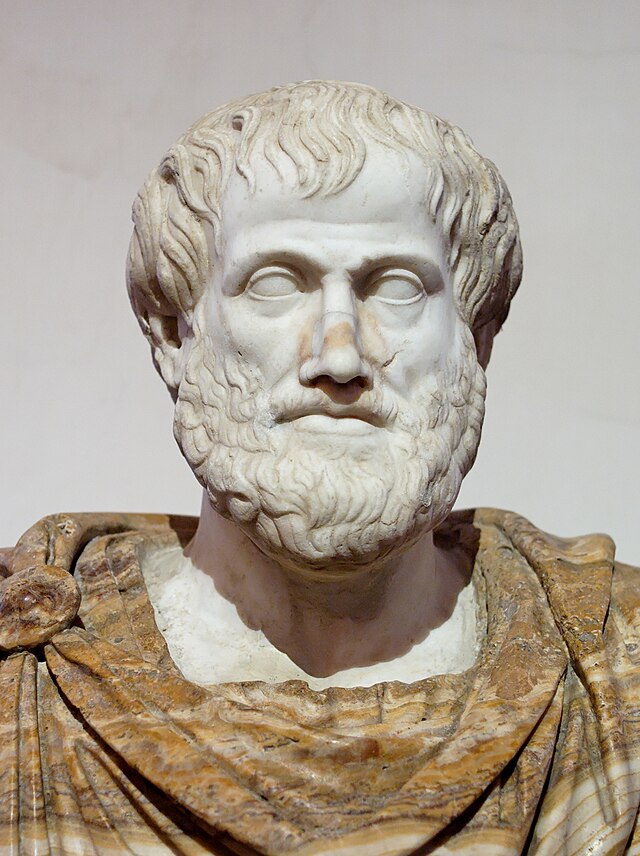智能
From Wikipedia, the free encyclopedia
智能(粵拼:zi3 nang4;英文:intelligence),又或者叫智力,係心靈科學上嘅一個重要概念。個概念查實有啲含糊-包括諗嘢、對邏輯嘅運用、理解、自我意識、理性、計劃、創意同埋解難等嘅認知功能,都俾人認定係量度智能嘅重要指標,而最籠統噉講,智能可以定義做「一個個體感知同推斷資訊、將呢啲資訊儲起同化為知識、並且用知識適應環境」嘅能力[2][3]。

人類喺智能上可以話係動物界之冠,但智能並唔係人獨有嘅特質:喺廿一世紀打前,心理學等領域對智能嘅研究多數都係集中喺人身上做嘅[2];但廿世紀尾嘅研究表明咗,智能呢家嘢喺人以外嘅動物[4]甚至乎某啲植物[5]身上都可以觀察得到,例如蜜蜂曉起大過自己好多嘅竇,或者係捕蠅草展示記憶能力呀噉[6]。而且對智能嘅研究令廿一世紀初嘅科學界開始咗嘗試用電腦程式等嘅方法,令人造嘅機械都能夠表現出類似有智能嘅行為-機械展示嘅智能就係所謂嘅人工智能[7]。
喺人當中,智能可以用 IQ 量度,做法簡單講如下:心理學家會設定標準化嘅測試,例如一系列要求受試者做邏輯判斷嘅問題;跟住佢哋搵班人返嚟做受試者,睇吓每位受試者喺呢個測試嗰度攞幾多分;假設智商係跟常態分佈[歐 1](指多數人都處於中間位,而愈極端嘅數值出現頻率愈低)嘅,班受試者喺個測試上嘅分數中位數係 ,噉 就可以當係代表 100 分智商,然後可以按常態分佈嘅準則計出,呢個測試嘅每個分數代表幾多分智商;最後心理學家就得出一個可以喺第啲場合量度智商嘅測試[2]。事實表明,智商可以預測好多重要嘅嘢,所以喺心理學同多個社科領域上都有用[8][9]。
詞源

歐洲人好耐之前已經有喺度諗智能呢個概念。古希臘哲學家有提到智性[歐 2]呢個概念,指人類心靈裏面幫人分別真偽嗰一部份,例如阿里士多德[歐 3]就有詳細噉講佢心目中嘅人類心靈嘅構造,仲提議話智性係有別於感官、想像同埋理性嘅。古羅馬嘅人喺文化同思想上多方面都跟從古希臘,而現代英文當中嘅
- Intelligence
一詞就係嚟自拉丁文字詞
- Intelligentia 同 intellēctus
嘅-呢兩隻字詞嚟自拉丁文動詞 intelligere,大致係了解或者感知噉解[10]。
喺中世紀(5 至 15 世紀之間嗰段時期),intellectus 成為咗歐洲學者常用嘅一隻拉丁文字,主要用嚟指理解[註 1],而且佢哋翻譯啲用希臘文寫嘅書嗰陣會將 nous 譯做 intellectus 用嚟思考有關人類靈魂嘅不死性或者智慧等嘅相關問題[10]。
喺打後 18 世紀嘅啟蒙時期,歐洲嘅思想家開始反對基督教會嗰種諗嘢方式,並且開始用英文等平民化嘅語言嚟寫書,開始喺嚴肅嘅哲學著作當中用平民化嘅字眼[註 2]並且放棄 intellectus 呢啲教會用嘅字詞[11][12]。於是喺英文哲學文獻當中,
- Intelligence
呢隻相關嘅詞都少咗人用。後嚟要去到廿世紀嘅心理學研究當中,隻字詞先開始再俾人廣泛噉採用[13]。
由廿世紀開始,西人嘅學問傳到去成個世界-包括大中華地區。而喺粵港澳地區,英文 intelligence 一般會譯做智能-取自古代漢人以智指分辨是非嘅能力噉嘅意思[14][15]。
定義
到咗廿一世紀頭,心理學界對智能呢個詞「應該點定義」仲有相當嘅爭議[16]。例如响 1994 年,52 位心理學家喺華爾街日報一齊發表咗份題為《主流科學論智能》嘅宣言,喺份宣言入面噉講[17][18][19]:
| 「 | 」 |
而 1995 年由美國心理學會出版嘅報告《智能:已知同未知》就噉樣講[20][21]:
| 「 | 粵文翻譯:唔同嘅個體之間喺理解複雜諗頭嘅能力、有效噉適應環境、由經驗嗰度學習、做推理、用思考克服障礙(等方面)上有差異。雖然呢啲個體差異可以好巨大,佢哋(啲個體差異)唔係完全前後一致嘅:是但搵個人,佢嘅智能表現會隨時間、領域同埋判斷嘅準則而有變化。智能呢個概念係對於闡明同組織呢一柞複雜現象嘅嘗試。雖然喺某啲地方(心理學界方面)做咗唔少嘅闡明,但係目前仲未有可以解答嗮所有重要問題嘅概念化,而且冇一個係個個學者都認同嘅。其實早排有人搵咗廿幾個出名理論家,叫佢哋定義智能,佢哋交咗廿幾個彼此之間有些少唔同嘅定義出嚟。
|
」 |
事實係喺 1900 年至 2010 年之間,有多位認知心理學同相關領域嘅研究者都各自俾出對智能一詞嘅定義,包括:
- 「...(智能係)判斷,又或者叫有 sense(粵拼:jau5 sen1 si2),係改變自己適應環境嘅能力... (同埋)自我批判[22]。」
- 「...(智能係)一個個體整體上有目的噉行動、理性噉思考同埋有效噉應對佢周圍環境嘅能力[23]。」
- 「...(智能涉及)將資訊同概念技能吸收、儲起喺記憶、提取、結合、比較同埋喺新環境嗰度運用[24]。」
- 「對於我嚟講,『一個人有返咁上下智能』表示佢有一系列解難嘅技能-令到個個體能夠解決一啲佢撞到嘅實質嘅問題或者困難,以及喺適當嗰陣,創造一件有效嘅產物-呢件產物會表示有可能搵到或者製造新嘅問題-所以會為(將來)得到新嘅知識奠基[25]。」
- 「...(智能係)應付認知複雜性嘅能力[26]。」
- 「...(智能係)有目的又具適應性嘅行為[27]。」
- 「...佢哋嘅理論話智能係『人類獨有、改變佢哋自身嘅認知功能嘅結構去適應生活情況係噉變緊嘅要求嘅能力』[28]。」
- 結合咗多過 70 份嚟自心理學、哲學同人工智能研究嘅定義:「智能表示咗一個自主個體喺唔同環境下達到自己目的嘅能力」[16],呢樣嘢經已有數學上嘅形式化[29]。」
- 「 ∇ -」
- 「智能係一股力量 ,作用係將(嗰個個體)未來喺行動上嘅自由最大化,或者令到個人可以有嘅選項持續開放。智能嘅作用嘅強度以 代表,而未來嘅選項嘅多樣性係以 代表,而 就係未來有幾久遠。簡單啲講,智能唔鍾意俾啲嘢韞住[30]。」
... 呀噉。
人類智能

内文:人類智能
人類智能係指人類展現嘅智能。喺已知嘅生物當中,人類出嗮名喺智能上表現出眾:人類曉做(第啲動物做唔到嘅)複雜認知作業,而且具有自我意識[31];人類嘅智能令到佢哋能夠記住事物嘅特性(有陣時甚至唔使直接見過嗰樣事物),並且喺未來運用呢啲知識達到自己嘅目的,佢哋曉做複雜嘅學習、理解抽象嘅概念、做邏輯推理、搵出環境當中嘅規律、作出計劃同埋解決問題等等嘅認知功能,呢啲過程喺第啲動物身上都觀察得到,例如係貓同狗都好明顯識學習,但人類能夠靠佢哋嘅認知功能創造出一啲喺第啲動物當中睇唔到嘅嘢,例如係語言、文字以及一啲大過自己身體好多嘅建築物呀噉[32][33]。
一般因素
内文:一般智能因素
- 唔同嘅認知作業要求唔同嘅認知功能-有啲作業講求邏輯推理,有啲講求工作記憶,有啲講求創意... 等等;但心理學研究發現,一個個體喺咁多種唔同認知作業上嘅表現有明顯嘅正相關[歐 5]-即係話喺某個認知功能上勁過平均嘅人,傾向(但唔一定)會喺第啲認知功能上都勁過平均,而喺某個認知功能上弱過平均嘅人,傾向(但唔一定)會喺第啲認知功能上都弱過平均
- 於是有廿世紀嘅心理學家提出,一個人腦(認知功能發生嘅主要場所)會具有一個所謂嘅一般智能因素,呢個因素獨力噉主宰住個人腦喺認知能力上嘅普遍表現。
打後嘅心理學家做咗一大輪嘅心理測量研究,量度人類受試者喺唔同認知作業上嘅表現,知道每位受試者喺每件作業上嘅分數,並且對攞到嘅數據做因素分析[歐 6]等嘅統計分析;結果發現,人與人之間嘅唔同認知能力差異平均大約有成 40 至 50% 嘅都係源自一般智能因素上嘅差異嘅。呢柞研究確立咗一個諗法-人腦當中的確有某個因素,係能夠單獨噉反映個人「有幾聰明」嘅,而對智能有興趣嘅心理學家自然開始著手研究一般智能因素[34][35]。
智商
内文:智商
要對一般智能因素作出科學性嘅研究,就需要有方法量度呢個因素[36]。喺人類當中,人與人之間喺一般智能因素上嘅差異可以用智商[歐 7]呢個指標嚟量度。比較先進嘅智商測試大致上係建基於以下嘅思路嘅:
- 智能決定一個人普遍嘅認知能力,所以假想而家有一大柞考驗唔同認知能力嘅標準化問題,結合做一個測試;假設動機同專注力等嘅因素不變,一個人智能愈高理應會答啱愈多條問題;
- 於是心理學家攞若干個人做樣本,假設個樣本代表到人類總體,噉個樣本啲人喺個測試上嘅分數中位數[歐 8]係 理應反映咗人類總體喺個測試上嘅分數中立數,代表住最平均嘅智商(一般會設做 100);
- 假想有個人喺個測試上嘅分數係 ( 係分數嘅標準差),理應表示佢嗰個分數代表高過平均兩個標準差嘅智商... 如此類推。
通常班心理學家跟手仲會做吓進一步嘅統計分析,例如搜集數據,睇吓個測試上嘅分數係咪能夠預測一啲已知同智能有關嘅變數。最後佢哋會得出一個能夠一定程度上量度一般智能因素嘅測試,其他研究者可以攞個測試嚟做第啲研究[37]。不過要留意嘅係,智商測試有好多唔同款,款款度嘅認知能力都有啲唔同,而是但搵個測試,都梗會有專家批評個測試冇充分噉量度某個重要嘅認知功能[2][9]。

智商研究當中一個相當有爭議性嘅問題係「智商係咪天生?」。有唔少人主張智能係可以後天提升嘅。不過事實係研究顯示,一個大人嘅 IQ 有幾高喺好大程度上係由遺傳因素話事嘅-成年智商嘅遺傳度超過 60%,呢個結果表示,嘗試提高細路嘅智商的確有可能成功,但提高智商嘅措施好多時到咗成年嗰陣就會失效-一個本來智商平均、但因為呢啲提高智商嘅措施而提高咗智商嘅細路,大過咗之後多數會變返一般智商嘅大人。所以一般認為,智商同絕大多數心理特徵一樣,未見得係完全天生嘅,但好受遺傳因素影響[38]。
進化起源
内文:人類智能嘅進化
人類嘅高智能喺動物界當中好罕見,所以有好多科學家都覺得好奇:
| 「 | 人類嘅呢啲獨特能力係點進化出嚟嘅呢?
|
」 |
研究呢個課題嘅科學家會用多種方法,研究人類喺佢哋嘅進化史上有乜嘢有別於其他動物物種嘅經歷,而呢啲經歷有邊啲有可能引致人類進化出高嘅智能。不過到咗廿一世紀初,科學界對人類智能嘅進化仲未有一致嘅共識[39]。
喺廿一世紀初對人類智能嘅進化嘅研究當中,其中一個最受人採用嘅假說係社會腦假說[歐 9]。呢個假說係由英國人類學家羅賓·鄧巴[歐 10]提出,話人類之所以會進化出高度嘅智能,唔係因為要解決佢哋喺所住嘅生態系當中撞到嘅問題,而係為咗喺大又複雜嘅社會當中生存[40]:隨住早期人類開始聚埋一大羣生活,一個人每日都要應對好多人際關係,要記住大量嘅資訊,例如係「邊個邊個同首領關係好,要攀附」或者「邊個邊個做過好多衰嘢,信唔過」等等,而要記住呢啲資訊同喺同人相處嗰陣(冇意識噉)評估對方有幾信得過,就需要個腦有高度嘅運算能力,所以令人類喺物競天擇上有壓力要進化出運算能力更加勁嘅腦。不過呢個假說唔係人人都認同[40][41]。
動物智能

内文:動物認知
動物認知[歐 11]泛指動物嘅認知能力:喺廿世紀打前,對智能嘅研究不嬲都係集中喺人類身上做嘅,但近代啲嘅科學家有咗好多方法研究動物嘅智能;研究動物認知嘅科學家有啲會專門研究特定物種嘅智能,又有啲會研究比較唔同物種嘅智能。佢哋會用好多方法要啲受試動物解決一啲難題,例如要佢哋按某啲特定步驟撳掣嚟攞嘢食,亦都有研究動物用數字甚至語言諗嘢嘅能力。呢啲研究面對嘅挑戰包括咗要點樣作出一個喺唔同物種上都通用嘅智能定義,又要將用嚟量度動物智能嘅架生操作化,確保佢哋做到準確嘅量度等等[42][43]。
高智能物種
根據對動物認知嘅研究,智能表現出眾嘅非人類物種有以下呢啲:
- 黑猩猩屬[歐 12]同其他人科動物:黑猩猩同多種嘅人科動物都識得運用架生(一般認為,曉用架生係智能高嘅表現),例如係用石頭打爛一啲硬嘅嘢食嘅外殼,或者用樹枝將匿喺窿入面嘅蟲撩出嚟呀噉[44];除此之外,黑猩猩係極少數具有自我意識[歐 13]嘅非人類動物-佢哋識得喺鏡入面認得自己,似乎知自己係同環境分開嘅一件物體[45]。
- 狼等多種嘅犬科動物:有實驗試過要狼同狗喺實驗室入面搵嘢食,嘢食收埋咗喺兩個盒當中其中一個裏面,而研究員會用各種嘅手勢話俾佢哋知嘢食喺邊個盒嗰度,結果發現,狼同狗都曉慢慢學識解讀研究員嘅手勢,學識一嘢就搵到邊個盒有嘢食(學識解讀環境入面嘅訊號-智能嘅表現);狗出咗名識得學做各種嘅手勢同動作(例如係詐死),而狼只要有適當嘅誘因,都曉學多種嘅動作[46][47]。
- 海豚:海豚能夠解決複雜嘅問題以及用複雜嘅方法同同類溝通;而且有研究試過搵到有海豚曉採集海綿,再用啲海綿包住自己嘅吻突(頭前方突出嗰忽),似乎用嚟幫助佢哋用吻突喺海床嗰度掘窿-表示海豚識得整同用架生嚟解難[48]。
- 大笨象:大笨象曉做好多有智能嘅行為;例如有研究發現大笨象識喺地下掘窿,用個窿裝住飲嘅水,跟住仲會由樹嗰度採集樹皮,用樹皮遮住個窿等啲水唔會蒸發走,打後遲啲仲會返去個窿嗰度飲水-即係話大笨象會用架生,而且識做長遠嘅計劃[49]。
- 烏鴉:烏鴉識得運用架生,例如有研究搵到,有烏鴉會將堅果擺喺馬路上,等經過嘅車車爛堅果嘅殼,然後自己攞嚿堅果食[50];烏鴉仲曉同同類傳達複雜嘅資訊,例如有研究試過發現,烏鴉能夠認得傷害同攻擊過自己嘅人類,及後仲令到區內其他(冇見過嗰個人嘅)烏鴉同樣學識避開嗰個人-表示烏鴉嘅溝通系統能夠傳達「某個某個人係乜樣」等嘅複雜資訊[51]。
- 蜜蜂:蜜蜂曉起大過自己身體好多嘅竇(一般認為,曉起大過自己身體好多嘅結構係智能嘅象徵,例如人類就識做呢樣嘢);而且蜜蜂能夠記住採過嘅花-就算朵花離佢個竇成幾 km 咁遠-嘅位置記起碼幾日嘅時間,有相當強嘅記憶力[52][53]。
- 多種嘅頭足綱[歐 14](包括咗八爪魚同墨魚等嘅動物):頭足綱嘅神經系統同脊椎動物嘅大相逕庭,但就有極高度嘅智能,例如八爪魚就識得做觀察學習,即係透過觀察第啲動物嘅行動同結果嚟學識乜嘢應該做乜嘢唔應該,仲識得運用多種嘅架生[54]。
... 呀噉。
非人類嘅 g
既然非人類動物有智能,噉自然要問:人類以外嘅動物有冇一般智能因素[55]?根據動物認知研究,答案係肯定嘅:有份研究就攞咗一大柞描述 62 個靈長目物種嘅認知能力嘅數據返嚟,做咗統計分析,發現唔同嘅智能量度方法彼此之間有強烈嘅相關(如果一個個體喺某個智能作業上表現高過平均,佢喺第個智能作業上嘅表現傾向都會高過平均,反之亦然)-呢點同人類一樣。相關嘅研究顯示,喺靈長目當中,一般智能因素能夠解釋個體喺認知能力上嘅差異嘅 47% [55],而喺老鼠當中,呢個數值就去到成 55 到 60% 咁高,呢啲數值同喺人類當中搵到嘅(40 到 50%)好接近[56]。上述證據顯示,雖然例如創新、觀察學習、思考同解難等係相當唔同嘅認知作業,但佢哋都會俾同一個隱藏嘅因素支配住-就算喺非人類動物當中都係一樣[55]。
不過要留意嘅係,研究發現咗有一啲物種嘅智能比較分塊化[歐 15],噉講嘅意思係話,呢啲物種嘅個體喺唔同認知作業上嘅表現嘅統計相關弱,技術性啲噉講即係「一般智能因素解釋得到嘅差異」比較細,而呢點表示佢哋嘅認知系統冇咁似人噉,由一個統一嘅認知能力(一般智能因素)控制[57]。
植物智能

内文:植物智能
植物就噉睇好似連郁都唔識郁,而且連神經系統都冇,不過有科學家發現,植物曉感應(感知)自己四圍嘅環境,喺自己嘅內部組成一啲有關「個世界係點嘅樣嘅」模型,並且按照呢啲資訊調較自己嘅生理狀態同表現型,等自己喺生存同繁殖上更加成功。舉個例說明,有研究指,有好多植物都曉得喺向橫生根撞到障礙物嗰陣,將條根改為向上生,而且仲會定時定候耷返條根落嚟睇吓過咗嚿障礙物未[58]。按照正話提到嗰啲定義,喺廣義上,植物嘅呢啲能力經已可以算係智能嘅一種型式[59][60]。
Info:捕蠅草
喺植物智能嘅研究上,似乎具有記憶能力嘅捕蠅草[歐 16]係個好出名嘅例子。捕蠅草源於美國東部嘅亞熱帶濕地嗰度,佢哋住嘅地方啲泥土一般都係冇乜養份嘅,所以就進化出捉動物嚟食嘅能力,主要食昆蟲[61][62]。
捕蠅草嘅葉正常情況下係打開嘅(好似附圖噉),而當塊葉上面嘅毛(每邊三條)感覺到昆蟲踩喺上面嗰陣,會一嘢合埋挾住隻蟲,等佢走唔甩,跟手塊葉就會分泌啲消化液出嚟監生消化咗隻蟲佢[6]。喺呢個過程當中,捕蠅草用咗一種特殊嘅機制:佢唔可以吓吓一感覺到啲毛受刺激就合埋同開始消化,因為噉會搞到佢塊葉會喺受啲唔係昆蟲嘅嘢(例如係跌落嚟嘅樹葉)刺激到嗰陣合埋,嘥嗮啲時間同消化液;所以捕蠅草嘅毛有種特殊機制,要有最少兩條毛喺 30 秒之內都受到刺激(即係有啲嘢喺塊葉上面郁)嗰陣,塊葉先會合埋,呢個機制表示樖捕蠅草起碼要喺第二條毛受刺激嗰一刻以某啲型式記得「第一條毛喺少過 30 秒之前受過刺激」-算係一種原始嘅記憶能力[61]。
話雖如此,「植物算唔算有智能」喺廿一世紀初嘅科學界都仲係一個好有爭議性嘅問題。
有股反對意見就指出,評定一個系統係咪有智能嘅其中一個重要準則係,嗰個系統要有能力創造同運用記憶,並且按照喺經驗當中學到嘅嘢改變自己行為(即係學習)。呢個定義包含咗人類、大多數嘅非人類動物以及係用咗機械學習技術令佢哋曉學習嘅人工智能,但唔包含喺多種植物當中觀察到嗰啲高度自動化嘅感官同反應。不過後嚟嘅研究顯示,植物當中有一啲物種的確識得分辨正面同負面嘅經驗(即係對正面嘅刺激同負面嘅刺激俾唔同反應),而且呢啲物種嘅植物個體仲曉按照過往嘅經驗嚟改變對外界刺激嘅反應,有啲甚至仲識得同同類溝通,等同類知道自己嘅位置等嘅資訊[63][64]。家吓有好多科學家都認同植物係具有智能嘅[65][66]。
人工智能
内文:人工智能
人工智能[歐 17]係電腦科學同心靈科學嘅一個交叉領域,專門研究點樣用(例如)電腦編程嘅方法令到一部有運算能力嘅機械(電腦)做出好似有智能噉嘅行為[67]。研究人工智能嘅科學家嘅目的係要整出一啲特別嘅(多數係電腦)系統,呢啲系統有目的、曉理解自己周圍環境(學習同知識表示),並且曉運用呢啲知識去令達到目的嘅機率有咁大得咁大[68]。人工智能領域嘅成就包括咗寫出曉做捉棋同認人樣等多種智能性作業嘅電腦程式,喺好似係自駕車等嘅技術上相當有價值[69]。
好似係機械學習[歐 18]呢個人工智能子領域噉,就專門研究點設計一啲特殊嘅演算法同統計模型,去教電腦喺唔使個用家開口俾明文指示嘅情況下,學識有效噉樣做一啲特定嘅作業。機械學習嘅典型做法如下[70]:p. 2:
- 編寫一個電腦程式,教部電腦點樣由數據嗰度建立一個數學模型嚟描述佢對啲變數之間嘅關係嘅知識;
- 搵啲樣本數據(即係所謂嘅「訓練數據」)返嚟,俾個程式處理吓啲數據入面嘅個案,等部電腦按個程式建立一個數學模型;跟住
- 喺將來再撞到同類個案嗰時,部電腦就會曉按佢個程式,用建立咗嗰個模型,對呢啲之前未見過嘅個案作出預測-個設計者唔使明文噉教部電腦點樣應對呢啲前所未見嘅個案,部電腦都會有能力一定程度上應對。
現實嘅研究表明咗,只要個演算法同訓練數據揀得好,部電腦跟住就會學識用個數學模型對將來撞到嘅個案作出相當準嘅預測-好似識學習噉[71]。
一般認為,人工智能領域嘅最終目的係要整出強人工智能[歐 19]:廿一世紀初嘅人工智能程式每個頂嗮櫳都淨係識得解決一兩個問題,唔似得人類智能噉,曉一個智能解多個問題,所以人工智能領域嘅科學家多數希望有日可以將世上所有嘅人工智能程式結合,最後砌出一個曉好似人類噉普遍解決問題嘅終極人工智能程式[72];而一個強人工智能會好似人類一樣,完美噉過到圖靈測試[歐 20][73]。
睇埋
文獻
英文文獻:
- Terman, Lewis Madison; Merrill, Maude A. (1937). Measuring intelligence: A guide to the administration of the new revised Stanford-Binet tests of intelligence. Riverside textbooks in education. Boston (MA): Houghton Mifflin. OCLC 964301.
- Wolman, Benjamin B., ed. (1985). Handbook of Intelligence. consulting editors: Douglas K. Detterman, Alan S. Kaufman, Joseph D. Matarazzo. New York (NY): Wiley. ISBN 978-0-471-89738-5.
- Blakeslee, Sandra; Hawkins, Jeff (2004). On intelligence. New York: Times Books. ISBN 0-8050-7456-2. OCLC 55510125.
- Hawkins, J. (2021). A Thousand Brains: A New Theory of Intelligence. Hachette Book Group.
- Public Library of Science. (2008, March 8). Can Moths Or Butterflies Remember What They Learned As Caterpillars?. ScienceDaily. Retrieved August 20, 2023 from ,呢篇文講到好多物種嘅蝴蝶同飛蛾似乎都有足夠嘅記憶能力,記住自己仲係毛蟲嗰陣學習過嘅嘢。
- Stanovich, Keith (2009). What Intelligence Tests Miss: The Psychology of Rational Thought. New Haven (CT): Yale University Press. ISBN 978-0-300-12385-2. 俾一般人睇嘅總結.
- Flynn, James R. (2009). What Is Intelligence: Beyond the Flynn Effect (expanded paperback ed.). Cambridge: Cambridge University Press. ISBN 978-0-521-74147-7.
- Mackintosh, N. J. (2011). IQ and Human Intelligence (second ed.). Oxford: Oxford University Press. ISBN 978-0-19-958559-5. 俾一般人睇嘅總結.
- Sternberg, Robert J.; Kaufman, Scott Barry, eds. (2011). The Cambridge Handbook of Intelligence. Cambridge: Cambridge University Press. ISBN 9780521739115. 俾一般人睇嘅總結.
引述
外拎
Wikiwand - on
Seamless Wikipedia browsing. On steroids.









